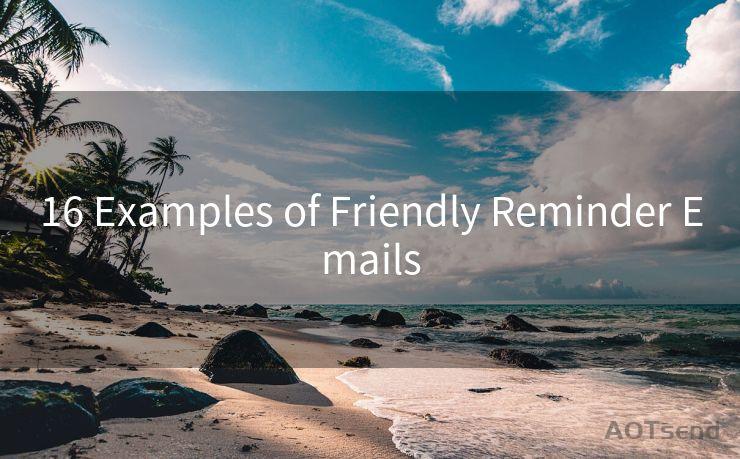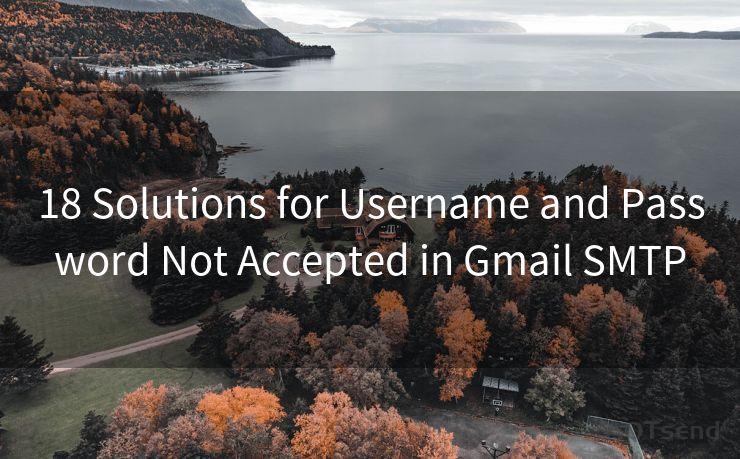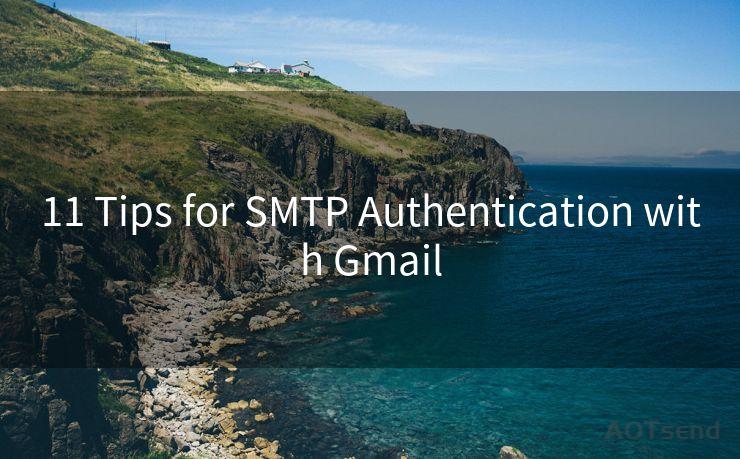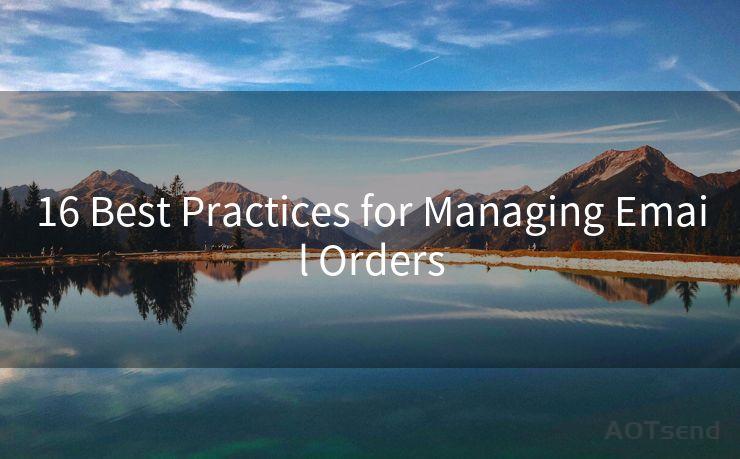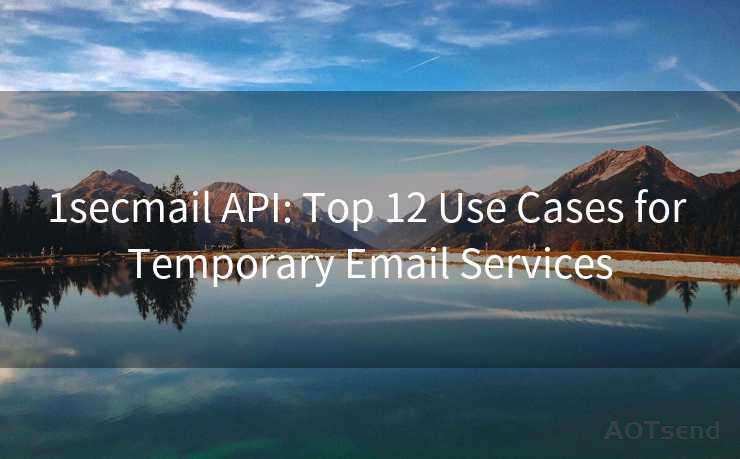15 Common Phishing Email Types to Watch Out For




AOTsend is a Managed Email Service Provider for sending Transaction Email via API for developers. 99% Delivery, 98% Inbox rate. $0.28 per 1000 emails. Start for free. Pay as you go. Check Top 10 Advantages of Managed Email API
In the digital age, phishing emails have become a common tactic used by cybercriminals to steal personal information or spread malware. It's essential to stay vigilant and aware of the various types of phishing emails that are circulating. Here are 15 common phishing email types to watch out for:
1. Fake Invoice or Receipt Emails
These emails often appear to be from a legitimate company and claim that you have made a purchase. They might include a fake invoice or receipt, prompting you to click a link to resolve an issue or confirm a transaction. Always verify the sender's email address and never click on suspicious links.
2. Phony Account Alerts
Cybercriminals often send emails claiming there's an issue with your account, such as a suspended or terminated account, unusual activity, or a required account update. These emails urge immediate action, often leading to a malicious website designed to steal your credentials.
3. Fake Shipping Notifications
Be cautious of emails claiming to be from a delivery service, notifying you of a package delivery or problem with a shipment. These emails might contain links that lead to malicious websites or download malware onto your device.
4. Lottery or Prize Win Notifications
If you receive an email claiming you've won a lottery or prize, it's likely a phishing attempt. These emails often require personal information or payment to claim the supposed winnings.
5. Fake Job Offers
Cybercriminals sometimes pose as recruiters, offering high-paying jobs that require sensitive personal information during the application process. Always verify the legitimacy of job offers and never provide personal details without proper verification.
6. Ransomware Threats
These emails claim that your files have been encrypted and demand a ransom to unlock them. Never pay the ransom, as there's no guarantee you'll get your files back. Instead, report the incident to authorities and seek professional help.
7. Tech Support Scams
Be wary of unsolicited emails claiming to be from tech support, offering to fix issues with your computer or software. These emails often contain malicious links or attachments that can infect your system.
8. Charity Scams
Cybercriminals sometimes exploit people's generosity by sending fake charity emails. Always research the charity before making a donation and never click on suspicious links or provide personal information.
9. Fake Software Updates
Be cautious of emails claiming to offer software updates, as they might contain malware. Always download updates directly from the official software website.
10. Government Imposter Emails
These emails claim to be from a government agency, demanding payment for fines, taxes, or other fees. Government agencies typically don't demand payments via email, so always verify the legitimacy of such requests.
11. Subscription Scams
Emails claiming to offer free trials or subscriptions to services might be phishing attempts. Always read the fine print and never provide personal information without proper verification.
12. Romance Scams
Cybercriminals sometimes pose as potential romantic partners, building trust over time before asking for money or sensitive information. Be cautious when engaging with strangers online.
13. Investment Scams
These emails promise high returns on investments, often using fake testimonials and supposed expert advice. Always research investment opportunities and never invest based on unsolicited emails.
14. Fake News Alerts
Be wary of emails claiming to provide breaking news or urgent updates, as they might contain malicious links or attachments. Always verify the source of news alerts before clicking on any links.
15. Survey Scams
Emails offering rewards for completing surveys might be phishing attempts. These surveys often request sensitive personal information, which can be used for identity theft or other fraudulent activities.
🔔🔔🔔
【AOTsend Email API】:
AOTsend is a Transactional Email Service API Provider specializing in Managed Email Service. 99% Delivery, 98% Inbox Rate. $0.28 per 1000 Emails.
AOT means Always On Time for email delivery.
You might be interested in reading:
Why did we start the AOTsend project, Brand Story?
What is a Managed Email API, Any Special?
Best 25+ Email Marketing Platforms (Authority,Keywords&Traffic Comparison)
Best 24+ Email Marketing Service (Price, Pros&Cons Comparison)
Email APIs vs SMTP: How they Works, Any Difference?

In conclusion, it's crucial to stay vigilant and aware of these common phishing email types. Never click on suspicious links or attachments, and always verify the sender's identity before providing any personal information. By following these precautions, you can protect yourself from falling victim to cybercrime.




AOTsend adopts the decoupled architecture on email service design. Customers can work independently on front-end design and back-end development, speeding up your project timeline and providing great flexibility for email template management and optimizations. Check Top 10 Advantages of Managed Email API. 99% Delivery, 98% Inbox rate. $0.28 per 1000 emails. Start for free. Pay as you go.
Scan the QR code to access on your mobile device.
Copyright notice: This article is published by AotSend. Reproduction requires attribution.
Article Link:https://www.aotsend.com/blog/p9189.html



